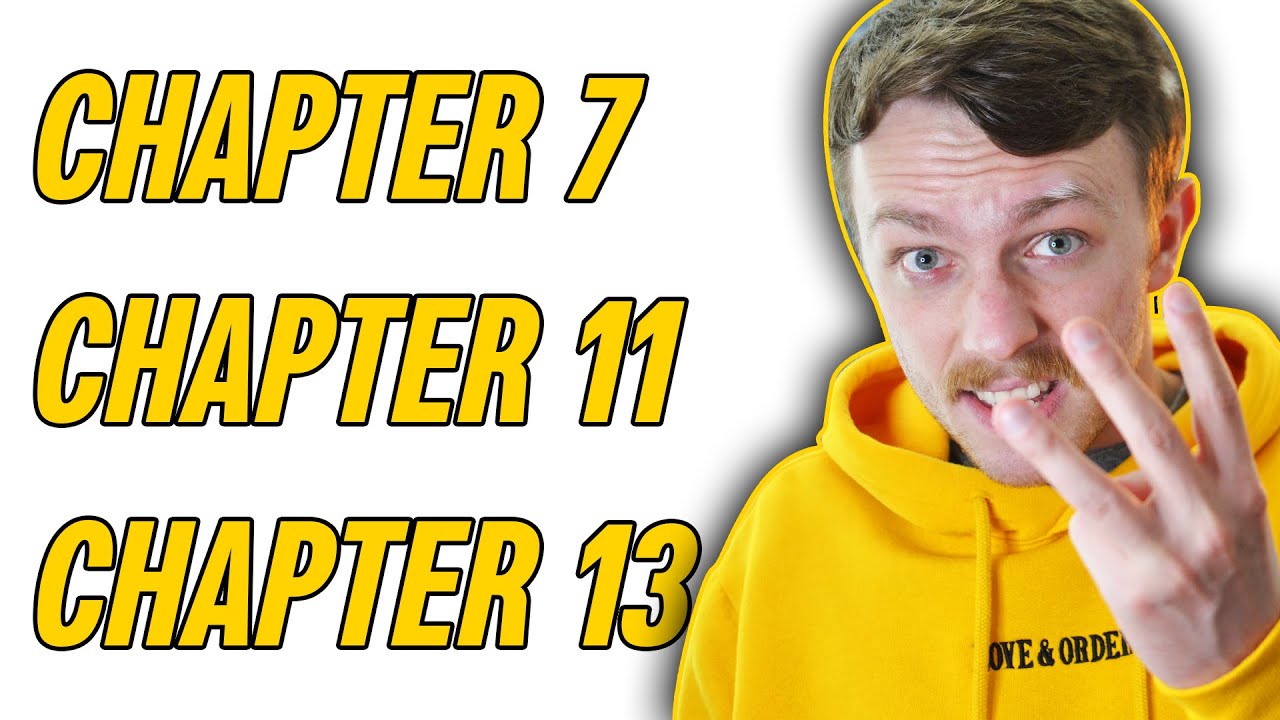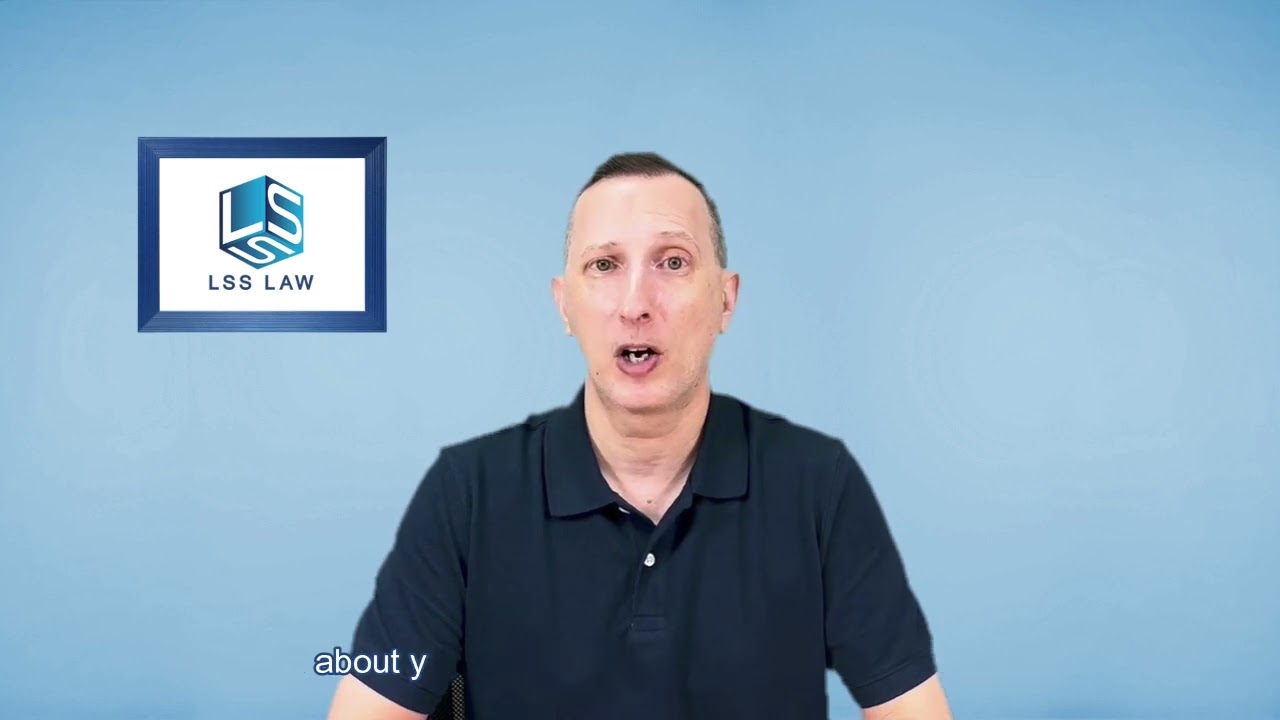In the grand scheme of things, facing financial strain is all part and parcel of life’s rollercoaster – unpredictable, often bumpy, and sometimes you just have to brace yourself and make some strategic maneuvers to get back on track. When it comes to navigating the choppy waters of bankruptcy, you’ve got options, with Chapter 11 and Chapter 13 being two main lifeboats people grab onto. Each one offers a different lifeline depending on your situation. Let’s dive into the nitty-gritty of Chapter 11 vs Chapter 13 and figure out the best course to steer you back to financial solvency.

The Fundamentals of Chapter 11 vs Chapter 13: A Comparative Overview
Now, who can grab these lifeboats? Almost anyone for Chapter 11 – businesses, corporations, partnerships, and even individuals with debts hogging space like unwanted house-guests. For Chapter 13, it’s reserved for individuals with a stable income and chewable debt limits. Before you file, remember Chapter 11 allows a flexible extension beyond five years, unlike Chapter 13.

Evaluating Eligibility: Qualifications for Chapter 11 and Chapter 13 Filings
Feeling like you’re juggling flaming bowling balls when it comes to debt? Let’s see if you can qualify to snuff out those fires with a Chapter 11 or Chapter 13 filing:

| Feature | Chapter 11 Bankruptcy | Chapter 13 Bankruptcy |
|---|---|---|
| Purpose | Primarily used for business reorganization, but also available to individuals. | Designed for individuals with regular income to restructure and pay off debts. |
| Eligibility | Available to businesses and individuals regardless of debt amount. | Reserved for individuals who have a steady income and meet specific debt thresholds ($419,275 of unsecured debt and $1,257,850 of secured debt as of April 2021, subject to change). |
| Debt Limit | No specific debt limit. | Debt limits apply: unsecured and secured debt must not exceed certain thresholds. |
| Time Frame | Debt repayment period can potentially extend beyond five years. | Debtor must complete payments within a three to five-year period. |
| Payment Plan | The debtor proposes a reorganization plan that may alter payment terms and discharge certain debts to stay in business. | The debtor must propose a repayment plan that uses the debtor’s future income for debt repayment. |
| Business Operation | The debtor typically continues to operate the business as a “debtor in possession.” | Chapter 13 is for individuals, not businesses, so it is not applicable. However, sole proprietors can continue business operations while in Chapter 13. |
| Legal Discharge | Upon plan confirmation, discharges pre-confirmation debts except those non-dischargeable under Chapter 7. | Occurs after the completion of the payment plan, covering most remaining unsecured debts. |
| Property Keeping | Allows debtors to keep their property and operate their businesses while paying creditors under the plan. | Prevents home foreclosure and allows debtors to keep their property while making payments through the plan. |
| Plan Approval | Must be approved by creditors and the court, and can be more complex. | Usually only requires court approval as long as it meets the code requirements. |
| Success Rate | Lower success rate due to the complexity and high cost of reorganization. | Higher success rate due to more manageable payment plans for individuals. |
| Cost | Generally more expensive due to complex restructuring and legal fees. | Less expensive in comparison to Chapter 11 with standardized fees for filing and attorney costs. |
The Procedural Divergence: Navigating Chapter 11 vs Chapter 13 Processes
Alright, here’s where it gets a bit procedural, a bit “Do Not Enter Without a Map”. Filing for bankruptcy isn’t exactly a walk in the park.

Financial Implications: Asset Management and Debtor Obligations
What happens to your treasured possessions? Under Chapter 13, you’re planting a “Not For Sale” sign on your assets – they’re usually safe, but you’ve got to pay off an equivalent amount of your unsecured debt. As for Chapter 11, it’s business-oriented, so it’s more about keeping the company assets intact and operational while you’re trimming the fat off your debt. Let’s just say, with Chapter 13, you’re less likely to get a “surprise, you’re out!” eviction notice than with Chapter 11.

Debtor in Control vs Reorganization: The Nitty-Gritty of Chapter 11
Calling all CEOs and business owners: Chapter 11 could be your chance to play the hero. You stay the captain of your ship – a debtor in possession – and navigate through troubled waters. But here’s the kicker: you’re doing a high-stakes balancing act. Steering a reorganization plan through court approval while keeping your business afloat? Not for the faint-hearted.
The Repayment Strategy: Diving into Chapter 13’s Debt Adjustment Plan
Now, if you’re an individual looking at Chapter 13, think of it as your financial comeback tour. You take center stage with a repayment plan tailored to your income. It’s about minimizing the drama and setting a pace you can actually keep up with. Remember though, while unsecured debts take a backseat, If I file bankruptcy What Happens To My house is a key question, and under Chapter 13, you may keep your pad as you catch up on mortgage arrears
Exploring the Hybrid Path: Chapter 11 vs Chapter 7 for Small Business Debt Relief
For small businesses, Chapter 11 might seem like bringing a bazooka to a knife fight. But when compared to Chapter 7, where it’s more of a “Alright, let’s sell everything and call it a day,” Chapter 11 can feel like a safety net made of steel. It’s about restructuring and breathing new life into the business while under Chapter 7’s liquidation model is akin to hitting the business’s “off” switch.
Individual Insolvency Strategies: Chapter 7 vs Chapter 13 Considerations
Folks, if you’re stuck between a rock and a Chapter 7, you’re looking at discharge as your knight in shining armor for unsecured debts sans a lengthy payment plan. Chapter 13, while a slower walk towards debt freedom, lets you catch up on secured debts while also getting a break on the unsecured ones.
In-Depth Case Studies: Real-World Implications of Chapter 11 vs Chapter 13 Decisions
Now, let’s talk about the people behind the case numbers. We’ve seen stories of rebirth from the ashes of debt and tales of woe from those who bit off more than they could chew. There’s no one-size-fits-all here, but the journeys highlight the importance of crafting a recovery plan that’s as unique as your fingerprint.
Is Chapter 13 Worth It? A Critical Evaluation of Its Viability and Success Rates
“Is Chapter 13 worth it?” That’s the million-dollar question, ain’t it? There is no easy answer to that. It’s like asking if those lottery tickets in your pocket are worth the investment. The success of Chapter 13 boils down to your ability to stick it out for the long haul and honor that repayment plan. Chap, it’s not a sprint; it’s a marathon.
Leveraging Legal Expertise: When to Consult a Bankruptcy Attorney
When it comes to navigating these treacherous waters, don’t go solo – get yourself a bankruptcy attorney. These legal eagles can make the difference between a plan that flies or flops. Think of them as your financial Gandalf – wise, seasoned, and can navigate through Middle-earth kind of complexities.
Innovative Means to Recovery: Emerging Alternatives to Bankruptcy
Hold your horses before you dive headfirst into bankruptcy filings! The financial arena is buzzing with alternatives like debt counseling and financial education. Legislatively, there are winds of change blowing too – always something worth exploring to stay afloat without going down the bankruptcy route.
Unveiling Novel Insights: Beyond Standard Solutions
As we’re sailing into the future, bankruptcy waters are getting stirred up with new legislation and societal paradigms shifting like sand dunes. Keeping an ear to the ground on these changes could redefine the bankruptcy landscape entirely.
Carving Out a Path Forward: Navigating the Maze of Personal and Corporate Renewal
Wind up, here’s the part where things get really exciting. Charting your post-bankruptcy future is all about leveraging the lessons learned in the trenches. It’s a fresh slate, a time to sow new financial strategies and reap the rewards of financial literacy and perseverance.
Folks, in the tossing seas of debt, Chapter 11 vs Chapter 13 stand as lighthouses to guide you back to solvency. Whether it’s more of a business-focused maneuver or a personal finance reshuffle, the correct path is about as personal as your credit score. Dive in, research, and most importantly, seek professional advice tailored to your circumstances. And as you sail toward clearer waters, keep “Glcnf stock” and “sarah Snyder” on your radar for nuggets of wisdom. Your financial resurgence is not merely a chapter – it’s your very own epic saga.

Which is better Chapter 11 or Chapter 13?
Better for whom, you might ask? Well, choosing between Chapter 11 and Chapter 13 bankruptcy really hinges on your specific financial situation and business needs. Chapter 11 is often the go-to for businesses seeking to reorganize and remain operational, while Chapter 13 is a salvage operation for individuals looking to create a repayment plan and keep hold of their assets. So if you’re a business owner with your back against the wall, you might lean towards Chapter 11, while Chapter 13 could be your knight in shining armor if you’re an individual needing some debt relief.
Does Chapter 11 wipe out all debt?
Hold your horses! Chapter 11 won’t just make all your debt disappear into thin air. It’s designed to restructure debt and keep your business afloat, not provide a clean slate. Depending on the restructuring plan and court approval, some debts may need to be paid back in full, reduced, or even, in some cases, discharged. But let’s be real—it’s no magic wand!
Why is Chapter 13 better?
Why is Chapter 13 the belle of the ball? Simply put, it’s often a better fit for individuals since it lets you keep your stuff and sets up a three-to-five-year repayment plan based on your income. It’s like a financial diet that gets you back in shape without having to sell your prized possessions. And here’s the kicker: you also get protection from creditors knocking on your door!
Will I get paid in Chapter 11?
So, about getting those Benjamins in Chapter 11… When you’re a creditor in Chapter 11, you’re probably biting your nails wondering if you’ll see a dime. The deal is, if the reorganization plan is approved and you’re on the list of individuals or entities the company owes money to, you’ll get paid according to the plan’s terms. But keep in mind, folks, patience is a virtue; it might take some time.
What is the downside to filing Chapter 11?
Considering a dive into Chapter 11? Well, there’s no sugarcoating it; the downside is that it’s like opening Pandora’s Box of legal fees, paperwork, and court proceedings. Yikes! Plus, it’s got a public stigma that might make customers wary. It’s a tough road and not for the faint of heart, but sometimes it’s the only road worth taking for a business in distress.
Do you lose assets in Chapter 11?
Shedding assets in Chapter 11 isn’t always a given, but sometimes it’s part of the game. It’s all about the restructuring plan—think of it as the business’s new playbook. If the plan calls for selling assets to pay off debts, then, yep, some assets might be hitting the road. But hey, it’s not always the case, so cross your fingers!
How long does it take to rebuild credit after Chapter 11?
Rebuilding credit after Chapter 11 can feel like running a marathon with a backpack full of bricks. On average, it could take several years to get your credit score looking healthy again. It’s a journey, and you’ll need to be a budgeting ninja, making timely payments and showing you’ve got your financial act together. Just remember, slow and steady wins the race!
Who gets paid first in Chapter 11?
As for who’s first in line in Chapter 11, secured creditors take the cake. They’re like the VIP guests at the debt repayment party, often with collateral backing their claims. After them, it’s on to unsecured creditors and equity holders, who hope there’s still some pie left for them.
Is Chapter 11 worse than Chapter 7?
Is Chapter 11 the bigger bad wolf compared to Chapter 7? They’re different breeds, really. Chapter 7 is more of a clean slate but at the expense of liquidating assets, while Chapter 11 is about reorganizing and trying to keep the business alive. So if liquidation is a total nightmare for you, Chapter 11 might be the lesser of two evils.
Do you pay 100% in a Chapter 13?
Ah, the age-old Chapter 13 question—do you pay back every last penny? Not necessarily. The repayment plan is based on income, expenses, and debt types, meaning you might pay back all, most, or just a part of your unsecured debt. Think of it as a financial haircut, where you pay what you reasonably can over three to five years.
What will I lose if I file Chapter 13?
Filing for Chapter 13 doesn’t mean you’ll be parting with everything but the kitchen sink. It’s not like a yard sale of your assets. This chapter’s all about keeping your stuff and repaying debts over time. So you might keep your home and car, but you’ll be saying goodbye to a portion of your paycheck for a while.
Will Chapter 13 take all my money?
Will Chapter 13 take all my dough? Nope, not all of it. The court-approved payment plan is designed to leave you enough to live on, so you won’t be left counting pennies for groceries. You’ll have to tighten your belt, sure, but you won’t be left high and dry!
What happens to your bank account when you file Chapter 11?
Now, when you file for Chapter 11, your bank account gets thrown into the mix. The court might need to approve significant financial transactions. It’s kinda like having a chaperone for your bank account, making sure you don’t go on a spending spree while you’re supposed to be getting your finances sorted.
Why is Chapter 11 expensive?
Why is Chapter 11 as pricey as a high-end steak dinner? Simply put, it’s loaded with legal fees, accounting costs, and all sorts of professional expenses. Plus, the process is so complex, it’s like doing brain surgery on your company’s finances. So, it’s not for the penny-pinching—this move can really bruise your wallet.
Who is paid first in bankruptcies?
When bankruptcy’s the grim reaper at the door, secured creditors are the first in line to the estate’s buffet, followed by unsecured creditors, and then, if there’s any pie left, the shareholders. It’s all about who’s got legal dibs on the assets, akin to a financial pecking order.
Why do most Chapter 13 bankruptcies fail?
Why do most Chapter 13 filings crash and burn? It’s not for lack of trying, but often because life throws a curveball and folks can’t keep up with the payments. And, let’s face it, sticking to a strict budget for three to five years can be as tough as herding cats in a thunderstorm.
Do you lose anything in Chapter 13?
Do you lose anything in Chapter 13? It’s not a total yard sale, but you might have to forfeit a bit of your paycheck. The beauty, though, is you keep your assets while tidying up your debts. But remember, it’s not a free lunch; sticking to the plan is key.
Are Chapter 13 bankruptcies worth it?
Are Chapter 13 bankruptcies the ticket to financial freedom? Worth it is in the eye of the beholder (or the debtor, in this case). If dodging foreclosure and protecting your assets while chopping down debt sounds like a win, then Chapter 13 might just be your golden ticket.
What percentage of Chapter 11 bankruptcies fail?
And finally, what percentage of Chapter 11 reorganizations fall flat on their face? It’s a bit grim, but reports suggest that around 10% to 15% of Chapter 11 filings don’t cross the finish line successfully. Ouch! The ins and outs of reorganizing can be as slippery as a greased pig, and not everyone manages to hold on.


